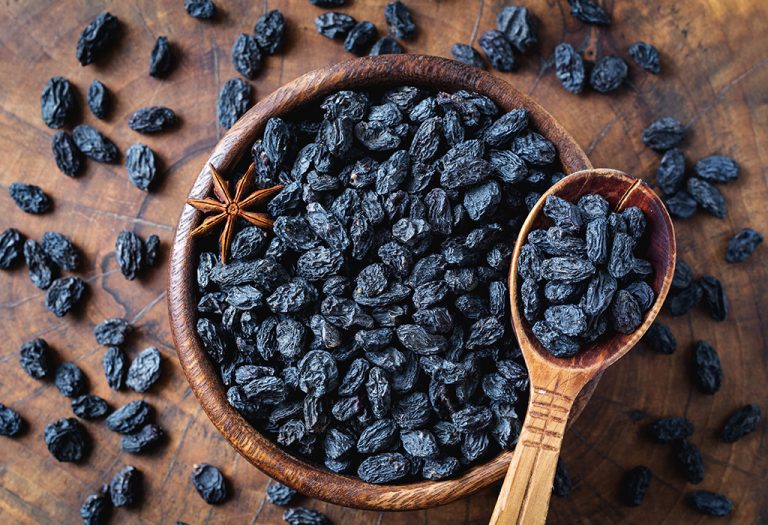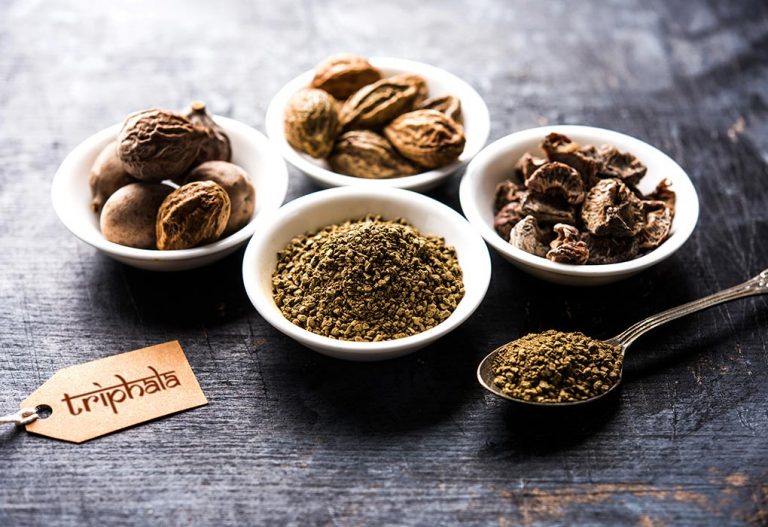Saffron in Pregnancy: Benefits, Side Effects & more

Pregnancy can potentially transform your physical and mental well-being to a great extent. Maintaining good health is paramount for the mother and the developing baby. Kesar, also known as saffron, has been cherished for centuries for its distinct flavour, aroma, and potential health benefits. But, is it safe to use saffron for pregnant women? It helps cope with feelings of anxiety, stress, and stomach pain and is often recommended during pregnancy. Kesar for pregnant women is beneficial, but like most things, kesar in pregnancy may also pose problems if not taken in moderation. Read on to understand the benefits, risks, and proper usage of saffron during pregnancy.
What Is Saffron?
Saffron is the dried stigma of the crocus sativus flower. It is a thread-like structure that contains pollen located at the centre of the flower. The saffron plant bears four flowers, from which the styles and crimson-coloured stigmata are collected and dried. A single flower contributes only three strands of saffron, and it takes approximately 14,000 strands to produce one pound of saffron. A lot of effort and labour go into harvesting these saffron threads, thus making it one of the most expensive spices in the world.
It is cultivated mostly in the Middle East and Mediterranean regions, and in India, this flower is only grown in Jammu and Kashmir. This exotic spice is known by different names in various Indian languages, such as saffron, kesar, koung, zaffron, or kumkumapoovu.
Also Read: Consuming Fennel Seeds During Pregnancy
Saffron is regarded as ‘The Golden Spice’ because it not only adds a unique aroma and flavour to food but also aids in health issues like digestion by forming a protective coating in the digestive tract. The yellow-orange colour imparted to the food containing saffron results from the carotenoid pigment crocetin.
It is used in many beauty treatment creams, as it has specific medicinal properties and soothing effects on the skin. It helps the skin regain radiance and glow, while maintaining an even texture. Additionally, due to its antioxidant properties, it effectively slows down the aging process. A common myth is that consuming saffron during pregnancy helps the baby have a fairer complexion.
Is Saffron Safe for Pregnant Women?
Is kesar good for pregnancy? The safety of consuming saffron during pregnancy can depend on various factors, including the trimester and the quantity consumed.
1. First Trimester
While saffron during pregnancy’s first trimester is generally considered safe in small amounts as a cooking spice, there isn’t enough research on its effects on fetal development. Therefore, it’s best to err on the side of caution and avoid consumption, especially in the early stages. It’s advisable to consult with a doctor before incorporating saffron into your diet during the first trimester. Since the risk of miscarriage is high in the first trimester and saffron is known to cause uterine stimulation after excessive use, it is preferred to avoid taking any risk.
2. Second Trimester
As the due date approaches in the third trimester, many women are curious about saffron’s potential to aid labour. Traditionally, saffron during pregnancy’s third trimester has been used in some cultures to stimulate contractions and ease childbirth. However, scientific evidence supporting this use is limited, and the safety of using saffron specifically for inducing labour has yet to be established (1).
Is Saffron Extract Safe in Pregnancy?
Saffron extract is highly concentrated and has been used in some Asian countries for various purposes, including depression, weight loss, fat burning, and reducing sugar cravings. However, there’s limited scientific research on its safety during pregnancy. Due to the lack of sufficient evidence, avoiding saffron extract during pregnancy is generally recommended, especially considering its high concentrations of crocin and safranal. Pregnant women need to prioritise safety and consult with their doctor before using any supplements or herbal remedies.
Benefits of Saffron for Pregnant Women
Saffron is essential and highly recommended during pregnancy because of its medicinal nature. Its primary advantage is that it helps digestion by forming a protective coating in the digestive tract. When consumed in moderation, the benefits of kesar in pregnancy include the following:
1. Reduces Mood Swings
Pregnancy triggers several hormonal changes in your body, and that has a profound effect on your feelings. You may go from being cranky at one moment to being impulsive or emotional in another. For such times, saffron can come to your rescue. It acts as an antidepressant and boosts the blood flow to your brain (2). Consuming saffron results in the production of the hormone serotonin, which elevates your mood. It also reduces the stress hormone cortisol.
2. Manages Blood Pressure
A woman’s heart rate can increase by 25% during pregnancy, resulting in fluctuations in blood pressure. Saffron contains potassium and crocetin, which help lower blood pressure (3). This feature can be beneficial during pregnancy.
3. Calms Morning Sickness
Morning sickness often leaves you feeling dull and lethargic. Anecdotal evidence suggests that saffron-infused tea typically helps alleviate nausea and dizziness.
4. Aids in Digestion
The majority of women suffer from stomach aches during pregnancy. Digestion slows down during pregnancy, and an expectant mother may require some stimulating agents to ease the process. Saffron is known to boost blood flow to the digestive system, thereby helping to enhance metabolism. This, in turn, aids in better digestion (4). Saffron causes the formation of a protective coating in the digestive tract. This extra layer helps soothe gastrointestinal acidity and also reduces bloating.
5. Gets Rid of Cramps
A pregnant woman experiences cramps ranging from mild in the beginning to near severe before delivery. Throughout the pregnancy, the bones and muscles stretch and shift to accommodate the growing baby, which can cause pains and cramps in the stomach and pelvic joints. Saffron is a natural painkiller. It relaxes the muscles, which helps to relieve stomach pain and soothe cramps (5).
6. Protects Against Heart Disease
Saffron possesses the magical property of protecting against heart disease (6). During pregnancy, women tend to consume more than the required amount of fatty foods to satisfy their increased appetite. This can have a detrimental effect on their cardiovascular system. The antioxidants, crocetin and potassium in saffron, help reduce triglyceride and cholesterol levels.
7. Cures Respiratory Illness
Saffron possesses anti-inflammatory properties that help dilate the nasal airways. It also reduces the swelling and inflammation in the lungs. As a result, you can breathe clearly. Saffron can also aid pregnant women with asthma by removing any blockage in their lungs and trachea.
8. Reduces Hair-Fall
Hormonal fluctuations during pregnancy often result in increased hair loss. A common practice among many pregnant women is applying a paste made from milk, saffron, and liquorice to help reduce hair loss. The antioxidants in saffron nourish the hair, making it stronger.
9. Aids in Better Sleep
As the pregnancy progresses, sleeping becomes a challenge, with the mother tossing and turning all night to comfortably accommodate the growing belly, deal with the effects of hormonal surges, and reduce the discomfort of stretched bones. All these factors together cause cramps, pain, and discomfort. During such times, you can have saffron-infused milk. Saffron contains mild soothing properties that help promote sleep and relax you (7). Drinking saffron with milk is known to enhance the quality of your sleep.
10. Heals Skin Problems
Many women claim that consuming saffron helps them fight common skin problems. These include pimple breakouts, melasma, and acne that arise during pregnancy. Saffron is a blood purifier and an effective solution to skin problems caused by impurities in the blood (8).
11. Helps Avoid Congestion Due to Allergies
Often, your immune system is compromised during pregnancy. You become vulnerable to infections and allergies, as it has anti-inflammatory properties. Saffron helps ease your cough, asthma, allergies, and nasal congestion. Additionally, applying a paste of saffron and sandalwood helps reduce fever.
12. Helps Experience the Movement of the Baby
According to Ayurvedic scriptures, saffron increases body heat, resulting in a rise in body temperature. This, in turn, results in the baby’s movement inside you. It’s always a pleasure to feel your baby move in your womb.
When to Consume Saffron During Pregnancy?
Saffron is believed to boost appetite and help with digestion. However, you should consult your OB-GYN and dietitian before consuming saffron during pregnancy.
Consuming saffron during the second trimester is recommended and considered safe, mainly from the fifth month onwards. Healthcare providers should instruct expecting mothers on when to consume saffron during pregnancy, ensuring they consume it in the correct amounts.
Eating saffron during pregnancy increases body heat, which raises the frequency of uterine contractions. Having it at night is ill-advised, as your body will be running many processes during this time.
Saffron is believed to induce contractions and, in extreme cases, may cause spontaneous miscarriage. Doctors recommended that a dose of not more than one strand per day, as any more than that may prove to be risky and affect your baby, causing preterm labour or even miscarriage. Although it has high nutritional value, it is advisable to be aware of when to eat saffron during pregnancy to avoid harm or adverse reactions.
How Much Saffron Can Pregnant Women Safely Consume?
If you are looking for a safe saffron quantity during pregnancy, you are at the right place. Taking less than 1.5 grams, essentially a small pinch, of saffron per day during pregnancy is considered safe for most pregnant women (9).
In another study, it is suggested that pregnant women may consume 0.5 to 2 grams of saffron per day to maintain uterine elasticity, but only after the first trimester (1).
Please remember that consuming more than enough amounts of saffron can lead to potential pregnancy complications, such as miscarriage. Large doses, more than 5 grams of saffron, should be avoided by pregnant women, as they could stimulate the uterus (10).
How to Eat Saffron During Pregnancy?
You now know that saffron is safe to be used in pregnancy, but in limited amounts. Expectant mothers must be well informed about how to use saffron during pregnancy. Saffron is primarily consumed in two forms:
1. Soaked Saffron
This is the most common way of using saffron at home or by commercial cooks. The saffron threads are gently crushed and transferred into water, milk, or broth. They are left to infuse for 10 to 15 minutes before being consumed or added to a recipe.
2. Crumbled Saffron
This form of saffron is best used in nutritious soups and salad dressings. You can crumble the saffron strands with your fingers and use them directly in different preparations.
Once you have prepared the saffron, the next step is to utilise it in dishes. If you’re wondering how to eat saffron during pregnancy, worry not, as there are plenty of ways to consume it. Saffron is an important ingredient in Indian cuisine, used in dishes such as kheer, lassi, biryani, and many other traditional sweets. Here’s how to use saffron during pregnancy:
3. Saffron With Milk
Calcium is an essential mineral for the growth and development of your baby. On entering the fifth month of pregnancy, you may add saffron strands to your milk. Otherwise, you may grind the almonds, pistachios, and saffron strands and add the paste to your milk. You can drink the saffron milk in the morning.
4. Saffron in Rice Preparations/ Soup
Saffron may be added to soups and rice dishes to enhance the flavour. One to two strands will impart colour and flavour.
5. Saffron With Water
You can put a strand of saffron in your glass of water and drink it. It will help in your digestion.
Side Effects of Saffron During Pregnancy
Saffron for pregnant ladies can be beneficial, but it has its share of side effects. Consumption of saffron in high doses can be hazardous for expectant mothers, as it leads to uterine contractions (10) and can cause the following issues:
1. Miscarriage
Saffron increases body heat and temperature, leading to increased uterine contractions. This can result in miscarriage during the early weeks of pregnancy (11). You should start consuming saffron only in your second trimester and after consulting your gynaecologist.
Also Read: Amazing Benefits of Eating Ragi during Pregnancy
2. Hypersensitivity
In many cases, pregnant women complain of experiencing anxiety, dry mouth, nausea, and headaches after consuming saffron. If you are facing such problems, it is best that you avoid saffron.
3. Vomiting
Saffron can also lead to vomiting in some women. Vomiting doesn’t just make you feel miserable but also deprives you and your baby of essential nutrients. Therefore, ensure that you do not experience an adverse reaction to saffron. If you do, you must avoid consuming it.
4. Saffron Poisoning
Saffron poisoning may occur when a person consumes high doses of saffron, equal to or more than 12g. This is characterized by yellowing of the skin, eyes, and mucus membranes, numbness, bloody diarrhea, nosebleeds, bleeding gums, and more.
Also Read: Eating Radish during Pregnancy
5. Contractions
Increased intake of saffron stimulates the uterus, increasing the frequency of contractions. This can lead to premature labour.
6. Dizziness
Owing to the sedative property of saffron, consuming it in higher doses can result in a feeling of dizziness.
7. Allergies
Women who are sensitive to certain foods and have a history of being allergic to Olea, Lolium, and Sasola plants are at risk of developing further allergies when eating saffron.
8. Bleeding From Eyelids, Nose, or Lips
Depending on the stage of pregnancy you are in and your experience of allergies and saffron consumption, there are possibilities of complications like bleeding from the nose, lips, or eyelids.
9. Numbness
A high intake of saffron may also cause numbness in some women. Numbness is a tingling sensation in the hands and feet that can also occur in the eyelids and lips.
10. Jaundice / Diarrhoea / Haemorrhaging
Taking in a large amount of saffron often causes toxic reactions in the body, resulting in conditions like jaundice, bleeding, and diarrhoea.
11. Blood in Urine or Stool
Discharge of blood in urine or stools can be a frightening sight for a pregnant woman. However, it could be a possible side effect of high saffron intake.
Also Read: Eating Pickles During Pregnancy – Health Benefits and Risks
Alternatives to Saffron While Pregnant
During pregnancy, some women may seek alternatives to saffron due to personal preferences, dietary restrictions, or concerns about its safety. Exploring alternative options can provide variety while ensuring nutritional needs are met. Here are some alternatives to saffron for pregnant women:
- Red Raspberry Leaf: Red raspberry leaf tea, brewed from dried raspberry leaves, is believed to strengthen the uterus and potentially reduce labour pains (12).
- Ginger: Whether consumed as tea, added to meals, or taken in capsule form, ginger is renowned for its ability to alleviate nausea and aid digestion during pregnancy.
- Peppermint: Peppermint tea, brewed from fresh or dried leaves, offers soothing relief from nausea and helps ease digestive discomfort. While generally safe, caution is advised with peppermint oil capsules, as they may exacerbate symptoms of heartburn or GERD in some pregnant women (13).
Other Things to Remember
Saffron is often sold in adulterated forms and can be harmful to pregnant women and their babies. It is essential to get original saffron and only from trusted sources. Some precautions or things to remember for consuming saffron safely during pregnancy are:
1. Buy Packaged Saffron
Local shops may sell these saffron strands in loose form. However, buying only packaged ones is best for preventive measures during pregnancy.
2. Go Through the Label
Before buying saffron, check the expiry date on the packet and ensure it is from a certified brand.
3. Check for Originality
You can differentiate between pure and impure saffron by the colour itself. Pure saffron is a deep crimson red and has a soft, orange-red tip. If you find the saffron completely crimson, it is probably fake or adulterated.
4. Saffron Grades
The grading of saffron is done based on its colour. The highest-grade saffron has the deepest tone and is the most expensive. Additionally, the higher grade of saffron has the most pronounced aroma. You may enquire about the grade of saffron to select the best available one.
5. Artificial Colouring
Ensure that the saffron you buy does not have any yellow or white threads. If it does, it means that the pack is adulterated, made up by mixing it with other parts of the flower.
Also Read: Eating Jackfruit During Pregnancy – Is it Safe?
6. Choose Saffron Strands Over Powder Form
Buy fresh saffron strands rather than in powdered form, as they may lose some of their antioxidant properties when powdered. Additionally, it becomes easier to verify their authenticity. To check for authenticity, you may immerse a few saffron strands in warm water. Original saffron takes about 10 to 15 minutes before its colour bleeds, whereas fake ones bleed colour the moment you immerse them in any liquid or food.
7. Storage Techniques for Saffron
Storing saffron properly is crucial to preserving its nutritional properties for an extended period. You will certainly want to store the saffron in a way that preserves its properties, as it is expensive. It must be stored in an airtight container in a cool, dark place, out of direct sunlight. This helps the saffron preserve its flavour for at least six months. You can wrap the saffron in foil to provide additional protection. It is best to keep this airtight container in the refrigerator. You can add a ground sugar cube to prevent saffron from absorbing atmospheric moisture. As described above, you can store saffron strands for up to three years if they are stored properly.
FAQs
1. Can saffron help with pregnancy-related mood swings?
Saffron is believed to have mood-enhancing properties and may help alleviate pregnancy-related mood swings for some women. However, individual responses may vary; consulting with a doctor for personalised advice is essential.
2. Can saffron consumption affect the colour or flavour of breast milk?
Some women may wonder whether kesar use in pregnancy can impact the colour or flavour of their breast milk. While there’s limited research on this topic, it’s advisable to consume saffron in moderation and monitor for any changes in breast milk composition.
3. Are there any precautions to consider when using saffron in pregnancy-friendly recipes?
When incorporating saffron into recipes during pregnancy, it’s essential to use it in recommended amounts and avoid recipes containing unsafe ingredients, such as unpasteurised dairy or raw eggs.
Saffron is a treasure trove of benefits, making it a valuable addition to your pregnancy diet. However, it’s essential to consult a dietitian or doctor to determine the right amount for consumption and to avoid any potential side effects. Enjoy kesar during pregnancy in moderation, and let its benefits enhance your health! Well, that’s it for today about saffron and pregnancy!
If you have any questions or any interesting facts about the use of saffron during pregnancy, let us know in the comments below.
Also Read:
Dry Fruits and Nuts in Pregnancy
Is Eating Raisins in Pregnancy Safe
Eating Pista (Pistachios) when Pregnant
Intake of Ginger Tea during Pregnancy
Consuming Figs (Anjeer) while Pregnant
Was This Article Helpful?
Parenting is a huge responsibility, for you as a caregiver, but also for us as a parenting content platform. We understand that and take our responsibility of creating credible content seriously. FirstCry Parenting articles are written and published only after extensive research using factually sound references to deliver quality content that is accurate, validated by experts, and completely reliable. To understand how we go about creating content that is credible, read our editorial policy here.
2. PubMed Central – Saffron (Crocus sativus L.): As an Antidepressant
4. PubMed Central – A Survey on Saffron in Major Islamic Traditional Medicine Books
6. PubMed Central – Cardiovascular Effects of Saffron: An Evidence-Based Review
8. PubMed Central – Saffron: A Herbal Medicine of Third Millennium
10. PubMed – Anti-inflammatory properties of drugs from saffron crocus
12. Pregnancy, Birth and Baby – Herbal teas during pregnancy and breastfeeding









































